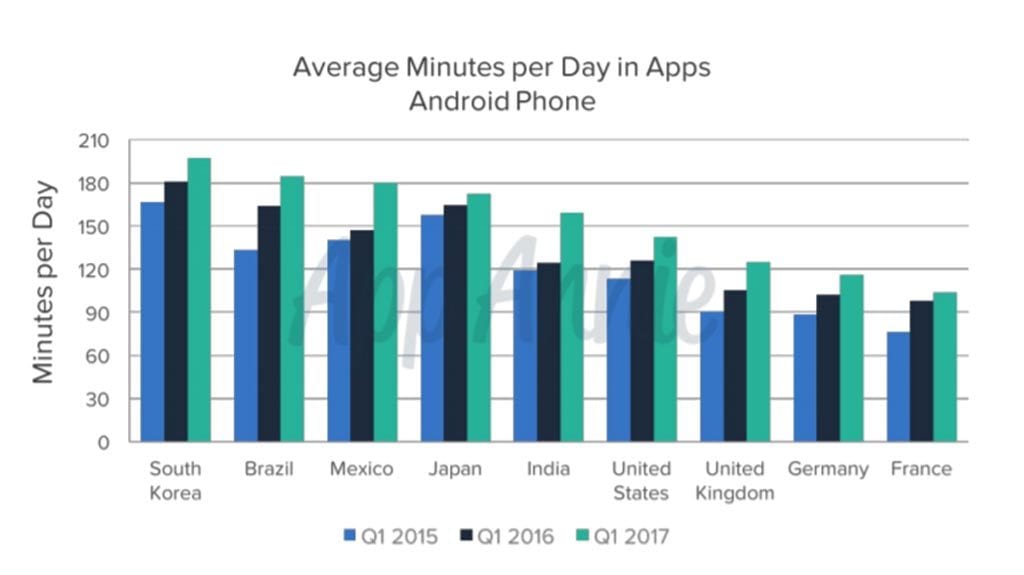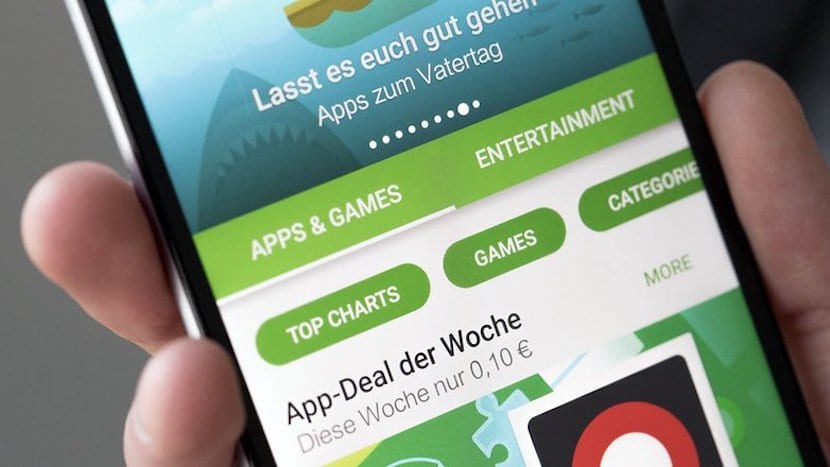
Since mobile applications made their appearance in our lives almost a decade ago, they are more and more in number, variety and quality, and there are also more mobile devices than we have for it. The logical result is an increase in the use of mobile applications.
In fact, in recent years the upward trend has been repetitive: each year, users spend longer periods of time using mobile applications. Thus, according to the latest report by App Annie, Last year of 2016 we spent almost a trillion hours using mobile applications. And from what this trend points, it seems that 2017 will not be much different, and the numbers will continue to rise.
Immersed in mobile applications
According to the graph that you can see below, referring only to devices that work under the Android operating system, users have passed a 25% more time using mobile apps during the first quarter of 2017 than in the same period of the previous year. According to the analysis firm App Annie, the reason for this strong growth would be none other than the increase in the smartphone user base itself: the more smartphone users, the more application use. Therefore, the conclusion would not be so much that people are using mobile applications with a greater frequency and intensity, but that there are more people using apps than ever before.
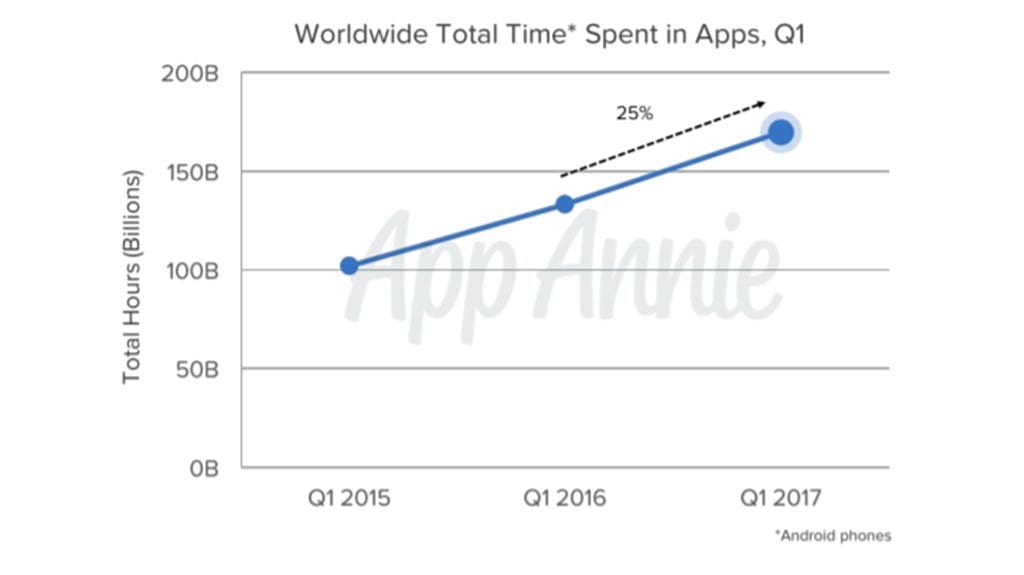
Time that users spend using mobile applications on Android (expressed in billions of hours)
We do not use all the applications we download
We all have applications that we practically do not use. It is estimated that We only use between a third and a half of the apps we have installed, the reasons for this being diverse.
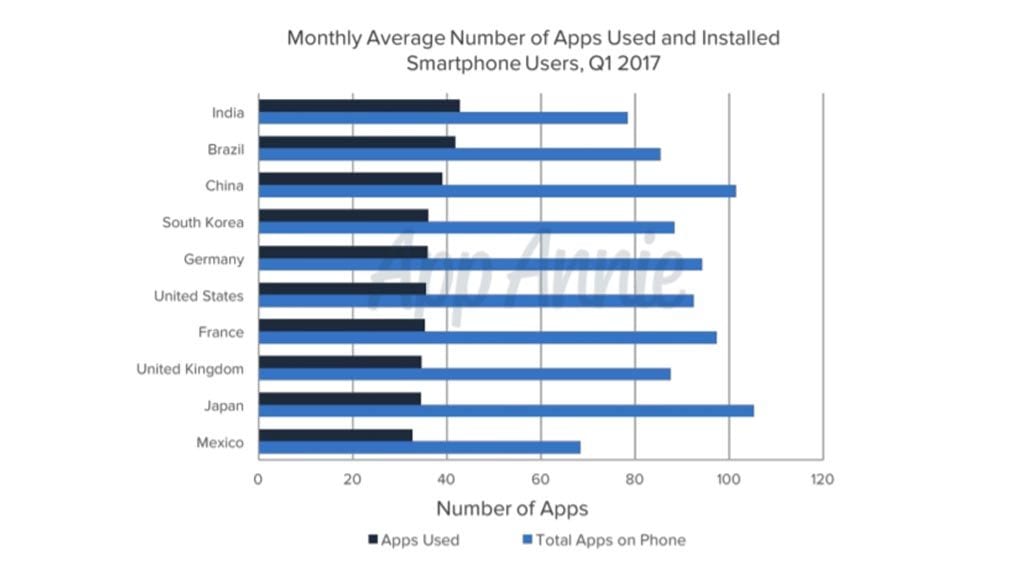
Relationship between the number of applications installed and the number of applications used
Many devices arrive with pre-installed apps that people just never use while the applications of the type file managers or others of the category productivity tend to be little used. For example, many people use Google Docs yet most only download presentations or spreadsheets from time to time.
App Annie's report cites the importance of retention as the key to success - the most successful apps are the ones that people actually use.
A dozen apps per day
In all the countries in this study, there is no demographic that does not use at least nine different apps every day. Most use more than ten applications per day And although it may seem like a lot, it is not so much if we think that every action we perform on the smartphone requires the use of an application.
Also the type of applications used on a daily basis varies between communication and social media, productivity, tools, utilities, shopping, entertainment, and so on. In conclusion, it is not that we use a lot of applications every day, but that we're using a bunch of different kinds of apps every day.
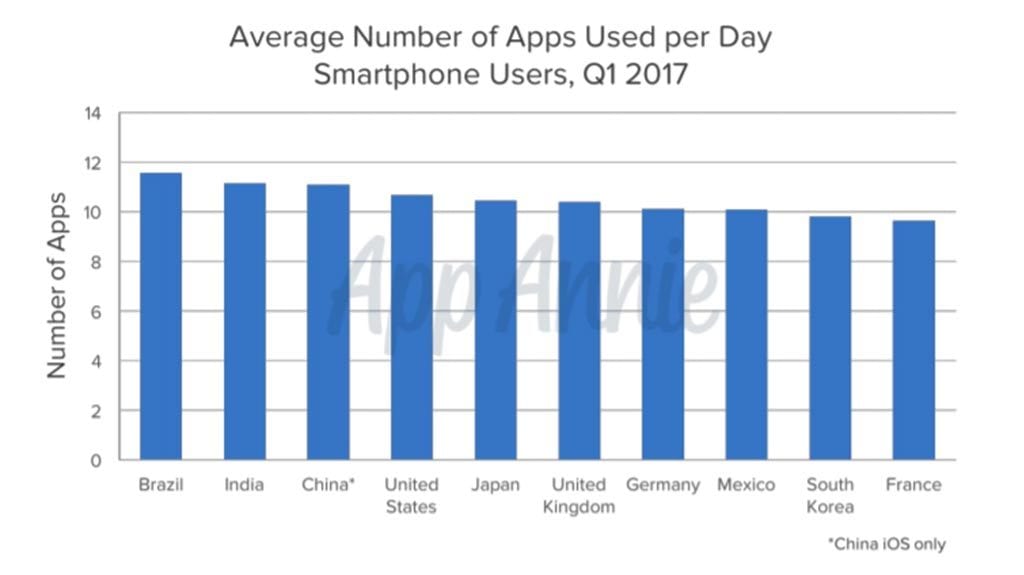
Number of different applications used each day according to regions
Regarding the above, users use four different tools and four communication applications per month. Pre-installed apps affect their use, for example, Google Chrome predominates on Android while Safari does on iOS. The Android device users play more games than iOS users. However, iOS users use a greater variety of social media than Android users. According to App Annie, the really important thing to consider is not the name of the applications, but the variety of types of applications that people use each month.
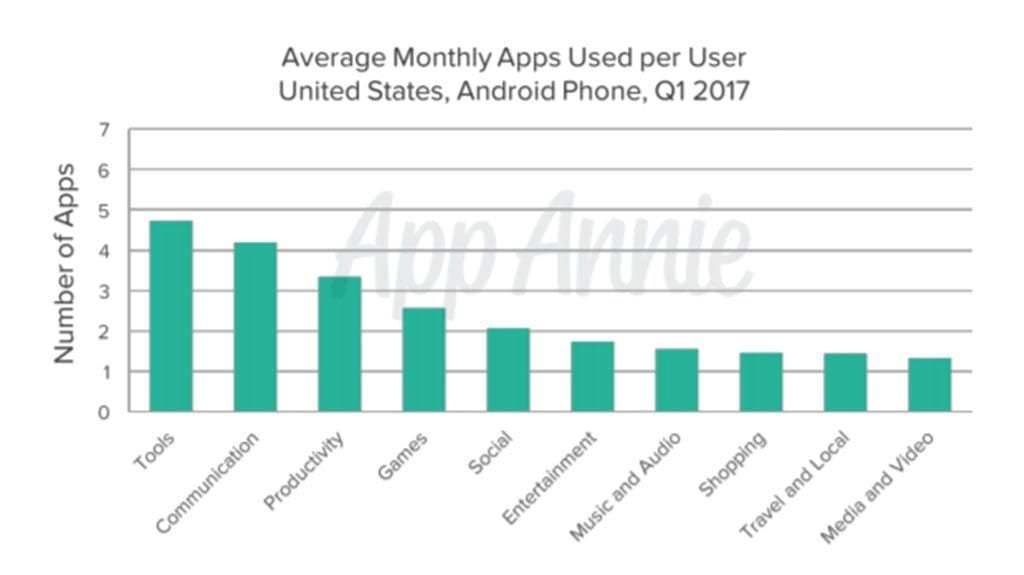
One month a year in one app
On the other hand, the data reveals that, on average, users spend one month of each year using an application of some kind, with an average of two hours and 15 minutes per day, an amount that has been increasing since 2015, which that reveals that every time we spend more time in front of our smartphone and therefore, our use of applications grows.
